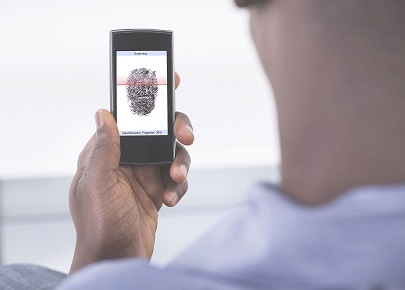 Verified by McAfee and the U.S. Better Business Bureau
Verified by McAfee and the U.S. Better Business Bureau
Every single business in today’s world has a database of its current customers and potential clients. The greater the database, the better for the business… and for criminals! It is no secret that in the last few years data breaches have become profitable businesses for criminals. The answer as to why this is happening is simple: information is power. But a recent trend is raising concerns regarding how far can companies go with their data collection efforts and how far can criminals go if they gain access to this information. The less you share online and with organizations, the safer you are.
Biometrics refers to metrics related to human characteristics, that include but are not limited to facial characteristics and fingerprints. Biometric identifiers are the distinctive, measurable characteristics used to label and describe individuals. Every time Facebook suggests you to tag someone in a photo, it is using facial recognition systems, meaning that they have a database where they store information about people’s looks, and are therefore able to identify them with only a photo.
Building the database
With today’s technology, many of us are currently collaborating to build the most modern of all databases; that which contains biometric information that can identify us. The password system, which is the source of so many data breaches, is getting phased out and it is being replaced by biometric systems. This basically means that people can use some distinct body attributes -such as a fingerprints or iris- to prove their identity instead of a password. Such features are already common in everyday devices like iPhones and Android mobile devices, and allow its owners to unblock the device or authorize a payment with a fingerprint. Pretty convenient!
The advantage of biometric security features is that they are very hard to copy, and consumers don’t have to remember them. However, using our unique distinctive features to unblock a phone means that we are also handing that information to a company, who can collect it and keep it saved for their future use. Not so convenient… Think it might be a pain to have to get a new credit card? Well, if a criminal hacks your fingerprints, it’s going to be very hard to get new fingers!
What are the risks?
Unfortunately, biometric data can also be hacked, and contrary to what happens when criminals steal passwords, this information cannot be changed. Everything that is stored under your unique fingerprints or unique face will be there forever because you can’t change either of them. When biometric security is compromised, the damage is long-lasting, and more serious than passwords and credit card numbers. While biometric security may have good intentions, the potential damage is greater.
Furthermore, we are voluntarily exposing ourselves to privacy risks when we share photos and personal information online. Earlier this year, a Russian photographer proved how easy it was to track down people using facial recognition software, and to obtain sensitive information from social media, that we voluntarily agree to share. This test proves that virtually any thug in the street with a facial recognition program could track you down almost instantly and use take advantage of the information to rob, kidnap or blackmail you right there. Big brother and government surveillance is here to stay, so unfortunately, good or bad, this new technology is likely here to stay.
How to avoid the risks?
Biometric systems are a trend, but there are other ways to take care of security. Russian investigators recommend sticking to the old password system which may be less convenient, but safer in the long run. Use strong passwords and codes that cannot be easily guessed. Many people use weak number combinations like 1234 or their own dates of birth to help them remember the password. Those are easily guessed and vulnerable to hacking. Also, keep selfies and photos private. You never know how much information a selfie can reveal from you. Keep your internet footprint small or none.
The less you share on the internet, the safer you and your family are.
Until governments and companies are obliged to resist to creating central databases that can expose consumers to great risks, your best option is to stay away from the biometrics database.
C. Wright
© 2016 Russia PI™
![]()
© Copyright 2016 Russia PI. All Rights Reserved. This content is the property of Russia PI, LLC and is protected by United States of America and international copyright laws.
 Cryptocurrency Scams on Social Media: How Influencers Are Misleading Investors
Cryptocurrency Scams on Social Media: How Influencers Are Misleading Investors
Cryptocurrency has rapidly gained popularity across the globe, with many people looking to invest in digital assets such as Bitcoin, ...
 Fighting Russia’s Rising Tide of Scams is an Increasing Priority
Fighting Russia’s Rising Tide of Scams is an Increasing Priority
Russia has seen a significant uptick in online scams over recent years, with cybercriminals becoming more sophisticated in their tactics. ...
 AI Chatbots Posing as Fake Victims to Catch Real Online Scammers
AI Chatbots Posing as Fake Victims to Catch Real Online Scammers
Bad news for Russian internet scammers! AI technology is now being used as a powerful tool in combating online scams, ...
 Russian Birth Family Searches: A Quest for Answers and Connections
Russian Birth Family Searches: A Quest for Answers and Connections
Searching for birth families of adopted children from Russia is a delicate and often emotional journey. It involves navigating complex ...
 The Untold Consequences of Romance Scams: Murder, Money Laundering and More
The Untold Consequences of Romance Scams: Murder, Money Laundering and More
We frequently hear about romance scam victims who were bold enough to disclose their situation to authorities and make their ...
 Cryptocurrency Involved in Nearly Half of All Financial Scams in Russia
Cryptocurrency Involved in Nearly Half of All Financial Scams in Russia
Cryptocurrency, with its promise of decentralization and financial liberation, has captured the imagination of investors worldwide. However, where there's money ...
 The Dark Side of Love: AI-Powered Romance Scams in Russia
The Dark Side of Love: AI-Powered Romance Scams in Russia
In the digital age, finding love often involves navigating the complex world of online dating apps. However, the quest for ...
 Companies Exiting Russia Due to Uncertainty in Business Environment
Companies Exiting Russia Due to Uncertainty in Business Environment
In recent times, the global business landscape has witnessed a dynamic shift, with companies reevaluating their operations in Russia. The ...
 Russian Online Criminals Targeting Foreign Assets
Russian Online Criminals Targeting Foreign Assets
Online thieves have gotten increasingly competent at using their talents to target international assets. These criminals are a huge threat ...
